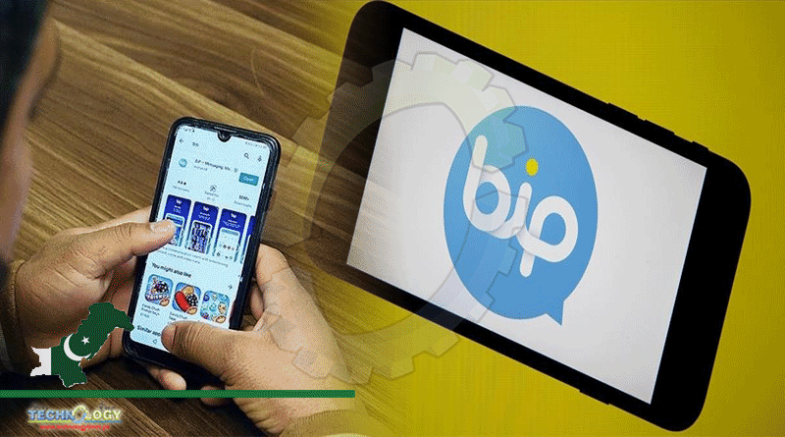Mohammad Ibrahim Qazi recently installed BiP app, a popular Turkish messaging app that is winning over more and more users worldwide.

WhatsApp’s controversial data-sharing policies, Pakistan-Turkey relations deciding factors in switch to BiP app.
Mohammad Ibrahim Qazi recently installed BiP, a popular Turkish messaging app that is winning over more and more users worldwide.
He is one of the many Pakistanis who are looking for alternatives after WhatsApp recently decided to introduce a new policy people fear will undermine their privacy.
“Pakistanis do not want to trade their privacy for a free messaging service. BiP is a good option by Turkcell,” a leading GSM provider in Turkey, Qazi, a director at the University of Management and Technology in Lahore, told Anadolu Agency.
He found BiP, which has both voice and video calls, interactive and its value-added services such as games and instant translator useful.
For Shamsuddin Amjad, features such as multilingual instant messaging, channels, and group chats are “better than many other apps.”
“You can add up to 1,000 people in groups,” said Amajd, who heads the social media of Jamaat-e-Islami, Pakistan’s mainstream religiopolitical party that has joined BiP.
Like WhatsApp, which is owned by Facebook, messages on BiP are also end-to-end encrypted.
“BiP takes the security of your personal data seriously,” a company spokesperson told Anadolu Agency in an email interview.
The Turkish app, founded in 2013, has more than 65 million users worldwide, 10 million of which were added in the last week alone, the representative said.
On Google Play, it now ranks first in Bahrain, Bangladesh, Qatar, Pakistan, Saudi Arabia, and Oman, the spokesperson said, adding: “Pakistan is one of our major markets.”
Even Indian users are not left behind. “I downloaded the app BiP made by Turkish company and found it better than WhatsApp / Signal / Telegram. Its features are amazing,” Sayyed Ibrahim from Mumbai, India wrote on Twitter.
This is partly because of WhatsApp’s controversial new privacy policy, which has now been postponed for implementation.
“WhatsApp’s new privacy policy reveals that personal data of users, including phone number, IP address, contacts, status, groups (including group name, group picture, group description), payments or business features, profile photo, and timestamp, will be shared with third party websites such as Facebook,” said Ramsha Jahangir, a Pakistani journalist currently based in Denmark.
“Every user wants to use a secure app and recent massive switching to other apps from WhatsApp is part of that move.”
Pakistan-Turkey relations
Another factor for BiP’s success in Pakistan is its strong, brotherly relations with Turkey.
Attshan Ali Abbasi, the founding director of National Youth Assembly Pakistan, said Pakistanis feel close to Turkey, and consider BiP as their own. “Youngsters are downloading BiP because of their love for Turkey,” he said.
If the company keeps improving and gives priority to its user interface and privacy, it could become the most downloaded app in the world, especially the Muslim world, Abbasi added.
In a statement, Atac Tansug, vice president of Turkcell digital services and solutions, said new features are in the works, which are sure to attract more users.
“People should switch to those applications which are offering best privacy protection,” said Nighat Dad, a Pakistani cyber security expert who heads the Digital Rights Foundation.
Originally published at AA
